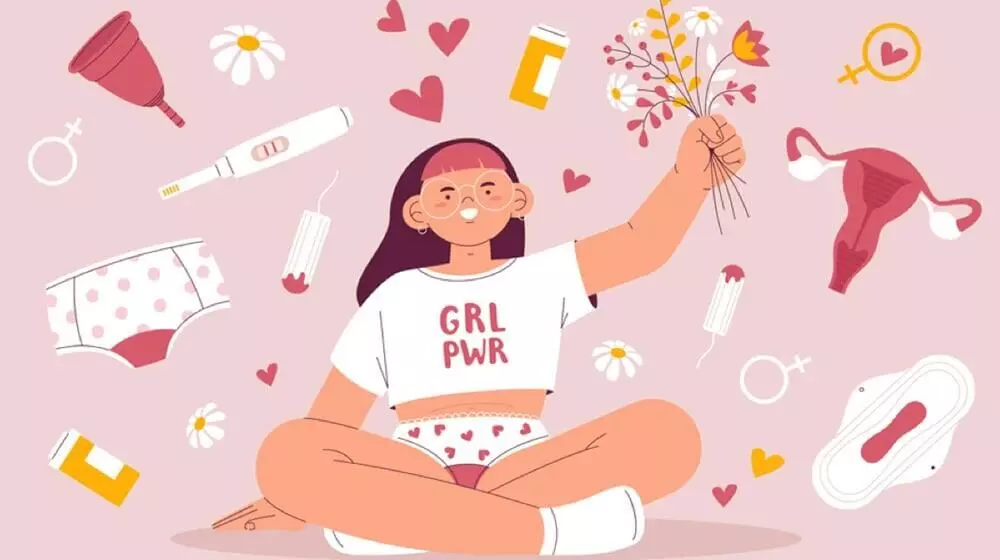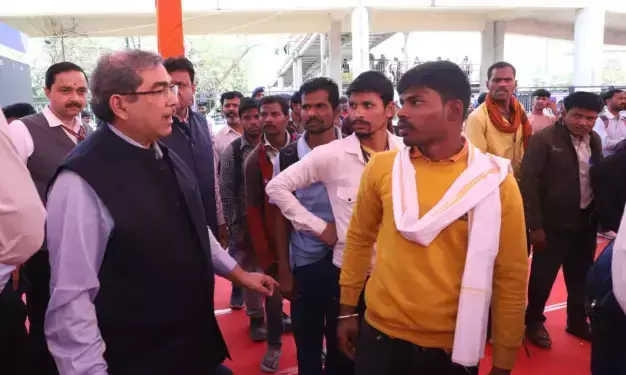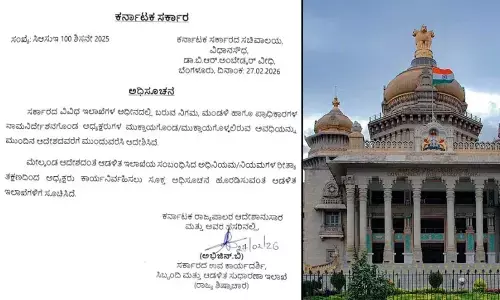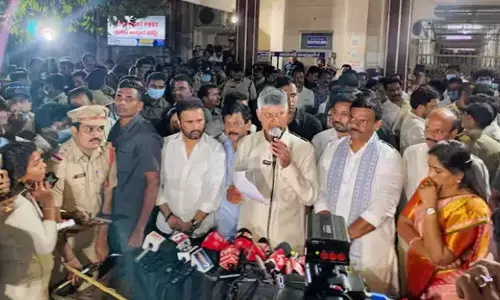Menstrual Care: A Pillar of Empowerment

Menstrual Care: A Pillar of Empowerment
With innovative brands and initiatives paving the way, the menstrual health landscape has become a focal point for addressing broader issues.
The conversation around menstrual hygiene has experienced a groundbreaking transformation. What was once a hush-hush topic is now a key part of health and empowerment conversations. With new brands, better awareness, and sustainable products, menstruation is finally being treated like the normal part of life they are. In an exclusive conversation with The Hans India, Mahipal Singh, Founder & CEO of Revaa, dives into the challenges, strategies, and advancements that define modern menstrual care.
Q1. How has the landscape of menstrual hygiene evolved in recent years, and what role do emerging brands play in contributing to these developments?
The menstrual hygiene space has undergone a seismic shift recently, and it’s both inspiring and long overdue. Menstrual care is no longer shrouded in stigma—today, it's a rapidly expanding $42 billion industry (Grand View Research, 2023) that thrives on transparency, inclusivity, and innovation. People are realizing that menstruation is a normal, healthy part of life, sparking open conversations that have replaced the silence once surrounding period care.
For us at Revaa, this shift is about more than just products. It’s about empowering people to feel confident, comfortable, and truly supported. We’ve witnessed firsthand how social media and educational programs are challenging outdated narratives and changing the way people perceive periods. Our commitment goes beyond creating reliable, eco-friendly products—we’re here to drive meaningful conversations and break down taboos. Emerging brands like ours also understand that access to menstrual products remains a critical issue, especially in underserved communities. We’re proud to focus on community-driven solutions, ensuring more people can experience the comfort and dignity they deserve during their cycles. It’s a new era of menstrual hygiene, and we’re thrilled to be part of it.
Q2. What are some of the most pressing challenges in promoting menstrual hygiene awareness, especially in rural or underserved areas, and what effective strategies have been used to address these?
Raising awareness of menstruation hygiene in underprivileged and rural regions presents both a problem and a chance for change. Menstruation is still viewed as a taboo subject in many communities, where it is associated with stigma and false information. This impacts menstruating women and girls’ confidence and health in addition to impeding their ability to learn. Also, specifically in these regions, affordable and sustainable menstrual products are often inaccessible, with poor sanitation facilities and waste management issues exacerbating the problem.
Community-based educational initiatives that include local influencers, medical professionals, and teachers to dispel taboos and normalise conversations about menstruation are effective ways to address these issues. In order to provide information and access to reasonably priced, reusable items like cloth pads or menstrual cups, nonprofits and emerging brands have begun mobile health clinics and awareness campaigns in the local languages. As well, collaborations with educational institutions to integrate menstrual health into the curriculum have yielded encouraging outcomes, educating young girls with knowledge and promoting enduring shifts in attitudes around menstrual hygiene. These initiatives not only supply affordable products but also offer educational sessions to debunk myths and educate women and girls on menstrual health management.
Q3. In your view, how can menstrual health be approached as part of a more holistic health and empowerment initiative?
For me, approaching menstrual health holistically means looking beyond just hygiene—it’s about total well-being and empowerment. Menstrual health should be part of a larger health initiative, one that includes nutrition, emotional well-being, and economic empowerment. Integrating menstrual care with access to clean water, mental health support, and educational opportunities can make a lasting difference. For instance, organizations like UNICEF and WaterAid embed menstrual health into broader health programs to ensure girls and women receive holistic support.
In the workplace, menstrual health can foster economic empowerment. India's Myna Mahila Foundation, for instance, creates jobs and promotes awareness by integrating menstrual product manufacturing with local community support. Seeing menstruation as an essential health issue—and connecting it to economic and emotional health—transforms it from a taboo topic into a powerful tool for resilience and confidence.
Q4. With sustainability now a major focus in product development, what steps are being taken in menstrual hygiene to reduce environmental impact, and how are brands leading this change?
In my view, sustainability in menstrual hygiene isn’t just a trend; it’s a responsibility we owe to ourselves and the planet. The industry is shifting fast, focusing on products that leave a much smaller environmental footprint. We're seeing the development of reusable period products like cups, period underwear, and organic cotton pads as eco-friendly alternatives to traditional plastic-based items that take centuries to decompose.
At Revaa, we're committed to empowering people with sustainable options that support personal health while caring for the environment. Brands are actively promoting a change to more sustainable menstrual care practices, assisting consumers in making eco-friendly decisions through collaborations with NGOs, and educational programs, and ensuring transparency in our sourcing.
Q5. What are some of the biggest challenges in convincing consumers to transition from disposable pads to reusable period panties, and how are brands addressing these obstacles?
One of the biggest challenges in getting people to switch from disposable pads to reusable period panties is overcoming habits and myths. Many consumers worry about hygiene, and comfort, or that these products might not be as convenient as disposables. It’s especially tough in India, where around 113,000 tons of menstrual waste—mostly disposable pads—add up annually. This waste is a massive contributor to plastic pollution, which makes the need for sustainable alternatives like reusable period underwear even more urgent.
To address these concerns, brands are leaning toward transparency and education. By hosting workshops and online content, we’re helping women see the environmental impact of disposables and feel confident about making the switch. For instance, NGOs like GPF India run awareness campaigns to introduce the benefits of sustainable menstrual products to communities. By highlighting the health, environmental, and cost benefits, we’re helping consumers feel more informed and empowered in their choices.
Q6. If menstrual health products became a category that every country’s healthcare system subsidized, how would that shift societal attitudes and access to better menstrual hygiene for everyone?
If every country’s healthcare system subsidized menstrual products, we’d see a transformative change in both societal attitudes and accessibility. Imagine a world where no one has to choose between hygiene and affordability. Scotland has led the way, making menstrual products free for everyone in public spaces. France and Belgium have also made strides with free period products for students and vulnerable groups, showing the impact that these subsidies can have.
Subsidizing menstrual products in places like India, where millions menstruate daily, would break down barriers and foster open conversations about menstrual health. This shift would make menstrual health a priority and empower women with choices that support their health and dignity. A more informed society, better health outcomes, and increased school attendance could result from this change. By working together, we can build a future that values and celebrates menstruation health.










